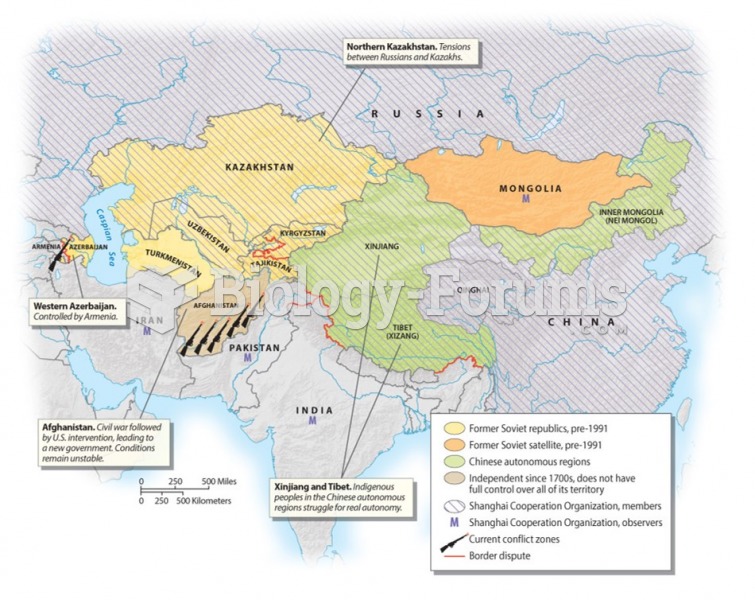|
|
|
Normal urine is sterile. It contains fluids, salts, and waste products. It is free of bacteria, viruses, and fungi.
The average older adult in the United States takes five prescription drugs per day. Half of these drugs contain a sedative. Alcohol should therefore be avoided by most senior citizens because of the dangerous interactions between alcohol and sedatives.
Eating food that has been cooked with poppy seeds may cause you to fail a drug screening test, because the seeds contain enough opiate alkaloids to register as a positive.
In 1835 it was discovered that a disease of silkworms known as muscardine could be transferred from one silkworm to another, and was caused by a fungus.
When taking monoamine oxidase inhibitors, people should avoid a variety of foods, which include alcoholic beverages, bean curd, broad (fava) bean pods, cheese, fish, ginseng, protein extracts, meat, sauerkraut, shrimp paste, soups, and yeast.
 The Dall sheep, Ovis dalli, a mountain sheep of far northern North America, was the subject of one o
The Dall sheep, Ovis dalli, a mountain sheep of far northern North America, was the subject of one o
 A statue of a corn goddess of the Moche peoples of coastal Peru, around 400 BP. Within several centu
A statue of a corn goddess of the Moche peoples of coastal Peru, around 400 BP. Within several centu





